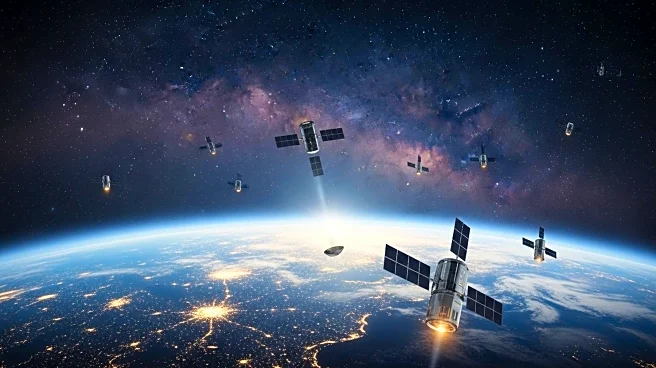What's Happening?
SpaceX is facing backlash as its Starlink satellites are reportedly plummeting to Earth at an alarming rate. Astronomer Jonathan McDowell has noted an increase in satellites falling from low orbit, with predictions that the rate could soon reach five per day. While these satellites are designed to burn up upon reentry, concerns remain about the environmental impact and potential for catastrophic chain failures, known as Kessler syndrome.
Why It's Important?
The proliferation of satellites raises concerns about space debris and its impact on the environment and global communications. The potential for Kessler syndrome could disrupt satellite operations, affecting internet services, weather monitoring, and global communications. The environmental impact of satellite launches, including emissions and toxic metals, also poses challenges for sustainable space exploration.
What's Next?
Experts have called for regulatory intervention to assess the environmental impacts of satellite launches. The FCC may need to pause Starlink launches until these impacts are quantified. Legal actions could arise if falling satellites cause damage to property or human life, prompting further scrutiny of space industry practices.
Beyond the Headlines
The situation highlights the need for international cooperation and regulation in space activities to prevent environmental degradation and ensure the sustainability of satellite operations. It also raises ethical questions about the responsibility of space companies to minimize their environmental footprint.










